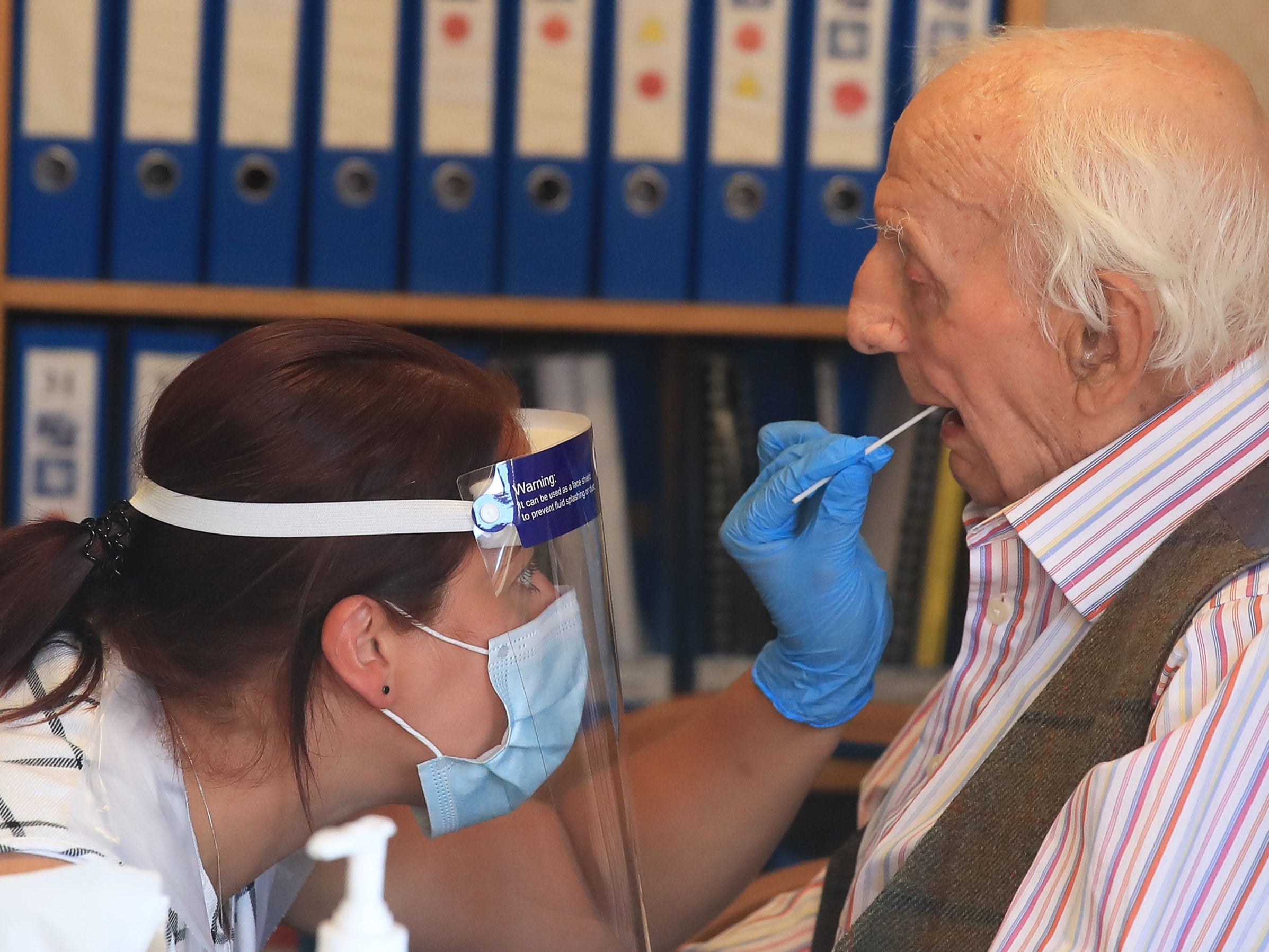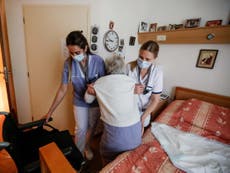High Court allows legal challenge over ‘devastating failure’ to protect care homes from coronavirus
Two women whose fathers died in care homes accuse government of ‘devastating policy failure’

Your support helps us to tell the story
From reproductive rights to climate change to Big Tech, The Independent is on the ground when the story is developing. Whether it's investigating the financials of Elon Musk's pro-Trump PAC or producing our latest documentary, 'The A Word', which shines a light on the American women fighting for reproductive rights, we know how important it is to parse out the facts from the messaging.
At such a critical moment in US history, we need reporters on the ground. Your donation allows us to keep sending journalists to speak to both sides of the story.
The Independent is trusted by Americans across the entire political spectrum. And unlike many other quality news outlets, we choose not to lock Americans out of our reporting and analysis with paywalls. We believe quality journalism should be available to everyone, paid for by those who can afford it.
Your support makes all the difference.A legal challenge over the “shocking death toll” from coronavirus in care homes is to be heard at the High Court after a bereaved woman won the first stage of her claim.
Dr Cathy Gardner, whose father died in a care home in April, alleges the government failed to protect them from the virus in “one of the most egregious and devastating policy failures of recent times”.
She and Fay Harris, whose father also died after catching Covid-19, argue that key policies and decisions led to a “shocking death toll” of care home residents.
They claim that hospital patients were discharged without proper testing and isolation arrangements, in a breach of legal obligations and human rights.
At a remote hearing on Thursday, Mr Justice Linden granted permission for a full hearing of the challenge.
He said that the claimants should be given permission to pursue the case on all grounds saying it “crossed the threshold of arguability”, adding: “I consider it in the interests of justice for the claim to be heard.”
The case is being brought against the Department for Health and Social Care (DHSC), NHS England and Public Health England (PHE), who had opposed the challenge and asked the judge to dismiss it.
Jason Coppel QC, representing Dr Gardner and Ms Harris, said: “The defendants’s failure to implement timely, adequate measures to protect vulnerable care home residents from the ravages of Covid represents one of the most egregious and devastating policy failures of recent times.”
He told the court: “The defendants implemented policies which exposed vulnerable care home residents, including the claimants’s fathers, to the risk of death or serious illness from Covid.
”In particular, during March 2020 the defendants formulated and applied a national policy of discharging patients from hospitals directly into care homes, without Covid testing or quarantine arrangements being applied and in circumstances where care homes lacked suitable infection control regimes including personal protective equipment (PPE).
“This, inevitably, resulted in the transferred patients seeding Covid infection within the vulnerable care home populations into which they were transferred.”
Dr Gardner's father died in an Oxfordshire care home on 3 April after a former resident who had been in hospital was readmitted without being tested for coronavirus.
His death was recorded as “probable Covid”, the court heard.
Ms Harris's father “died of Covid” after his care home accepted hospital discharges of patients who may have been infected with the virus.
Mr Coppel told the court that, NHS England and PHE “were aware at all relevant times” that care home populations would be “uniquely vulnerable to death or serious harm” if exposed to Covid-19, and that patients could transmit the virus to others without showing symptoms.
In a written document, he argued that “the nature of the care home physical environment, patient cohort and the relative (compared to hospitals) lack of expertise and equipment (including PPE) meant that many care homes would have no realistic possibility of implementing effective quarantine arrangements within their facilities.”
Sir James Eadie QC, representing the government and PHE, said decisions made earlier this year were a “reasonable response” in light of changing scientific advice.
“Throughout the period in issue it considered how best to protect older people both within and outside care homes,” he added.
”That involved making a series of judgments based on expert scientific advice, in an area in which the science was uncertain and evolving.
“There is no arguable basis on which to conclude that those judgments fell outside the range of reasonable responses to the pandemic as it, and understanding of it, developed.”
Sir James said the aim of the “discharge requirement” introduced in March was “to ensure those who were medically fit to be discharged were being discharged” to avoid the NHS being overwhelmed.
He said hospital space was being “freed up to take the worst affected cases, those nearest death's door”, and that hospital patients were “at greater transmission risk".
“It is wrong to suggest it was being done without a care for the risk in care homes,” he added.
“These risks were being subjected to continuing care and consideration.”
Sir James told the court that care homes had already been given guidance about safeguarding at that point, including around issues such as isolation.
Eleanor Grey QC, representing NHS England, said emerging evidence suggested that hospital discharges “were not a key cause or driver” for Covid-19 infections in care homes, and the grounds for challenging the organisation's request to discharge those who were medically fit from hospital were “unarguable”.
“That policy was a proper and lawful response to the public health emergency faced,” she added.
The claim is being pursued on the grounds that the government, PHE and NHS England breached duties under the European Convention on Human Rights (ECHR), including the right to life and protection from discrimination.
It is also argued that the defendants failed in their public law duties to “act rationally, with due enquiry, with regard to relevant considerations and disregarding irrelevant considerations”, and that the measures indirectly discriminated against elderly and disabled people.
The full case will be heard by the High Court at a later date.
Additional reporting by PA





Join our commenting forum
Join thought-provoking conversations, follow other Independent readers and see their replies
Comments